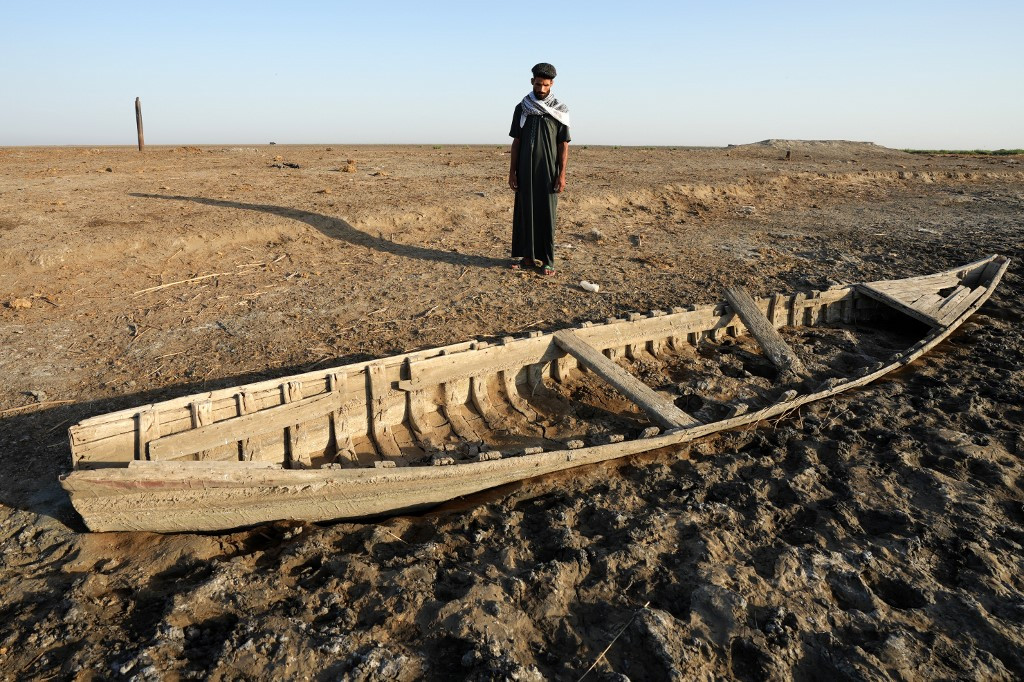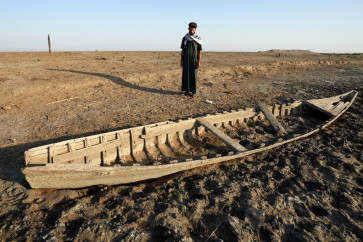Popular Reads
Top Results
Can't find what you're looking for?
View all search resultsPopular Reads
Top Results
Can't find what you're looking for?
View all search resultsIraq's marshes are dying, and a civilisation with them
Mohammed Hamid Nour is only 23, but he is already nostalgic for how Iraq's Mesopotamian marshes once were before drought dried them up.
Change text size
Gift Premium Articles
to Anyone
M
ohammed Hamid Nour is only 23, but he is already nostalgic for how Iraq's Mesopotamian marshes once were before drought dried them up, decimating his herd of water buffaloes.
Even at their centre in Chibayish, only a few expanses of the ancient waterways -- home to a Marsh Arab culture that goes back millennia -- survive, linked by channels that snake through the reeds.
Pull back further and the water gives way to a parched landscape of bald and cracked earth.
Mohammed has lost three-quarters of his herd to the drought that is now ravaging the marshes for a fourth-consecutive year. It is the worst in 40 years, the United Nations said this week, describing the situation as "alarming", with "70 percent of the marshes devoid of water".
"I beg you Allah, have mercy!" Mohammed implored, keffiyah on his head as he contemplated the disaster under the unforgiving blue of a cloudless sky.
The buffaloes of the marshes produce the milk for the thick clotted "geymar" cream Iraqis love to have with honey for breakfast.
As the marshes dry out, the water gets salty until it starts killing the buffaloes. Many of Mohammed's herd died like this, others he was forced to sell before they too perished.



















